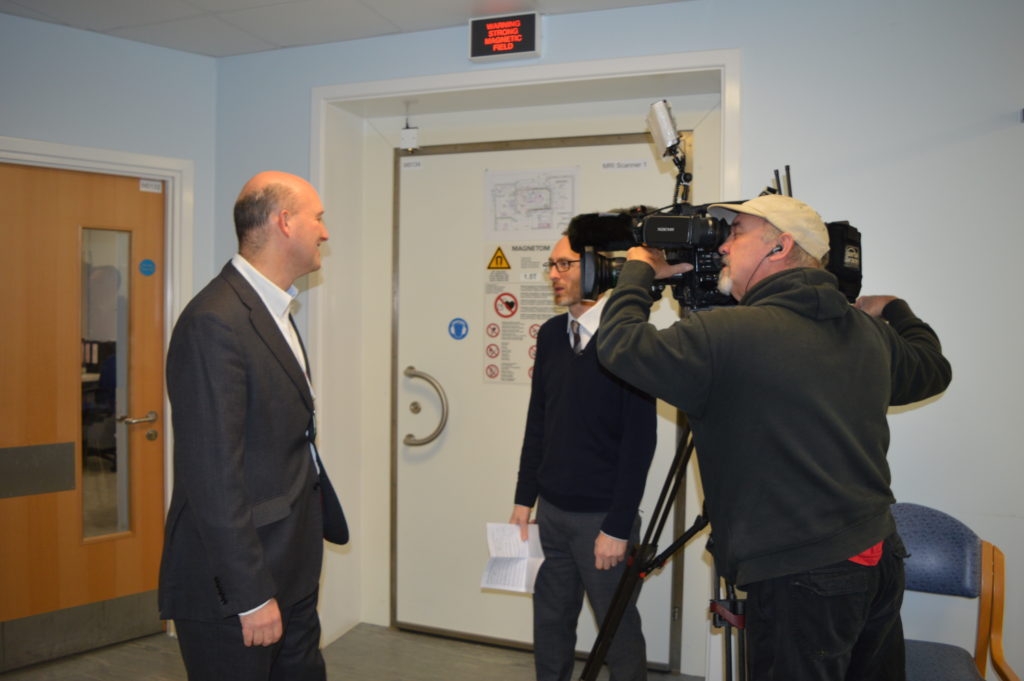
BSUH Consultant Uro-Radiologist Dr Jonathan Richenberg (left) with ITV journalist and film crew
BSUH’s pioneering work in prostate cancer has hit the headlines after being hailed as a “game-changer” by a national charity.
Work led by Consultant Uro-Radiologist Dr Jonathan Richenberg is providing a new pain-free test using MRI scanners to help improve the detection of aggressive prostate cancers, reduce the need for some men to have a biopsy and to reduce the risk of infection.
Prostate cancer claims the lives of around 11,000 men in the UK every year and is one of the most challenging cancers to diagnose. Nationally, of the 100,000 men who have prostate biopsies every year, two out of three are later found to have no cancer at all, or a tumour that is so slow-growing it is unlikely to pose a significant health threat.
At the same time, the test gives false reassurance to one in four men who are later found to have life-threatening prostate cancer, according to Prostate Cancer UK. Men who have the procedure face a two-three percent risk of developing serious, potentially fatal infections, including sepsis.
It is this level of uncertainty that the new multi-parametric MRI (mpMRI) scan is significantly reducing. By ruling out cancer, it could allow some men to avoid biopsy altogether. And combining the image from mpMRI with the biopsy procedure improves the detection of aggressive prostate cancers, reducing the need for repeat biopsies.
A major study in The Lancet has found that the technique radically improves the accuracy of prostate cancer diagnosis. The pioneering work has been recognised by Prostate Cancer UK and was featured in the Daily Mail and on ITV.
Dr Richenberg said: “The key here is that we’re using the MRI first as the triage test to decide which men need to go on for a biopsy and which men don’t and for those that go on for a biopsy – we have a map to make the biopsies as effective as possible.”
Charity Prostate Cancer UK has described it as a game-changer for men’s health and said: “It’s absolutely the biggest breakthrough in prostate cancer diagnosis for decades. This is really going to be the way forward and all men should be entitled to have this better, more accurate diagnosis and also to have the chance of avoiding a biopsy if they don’t actually need it.”

